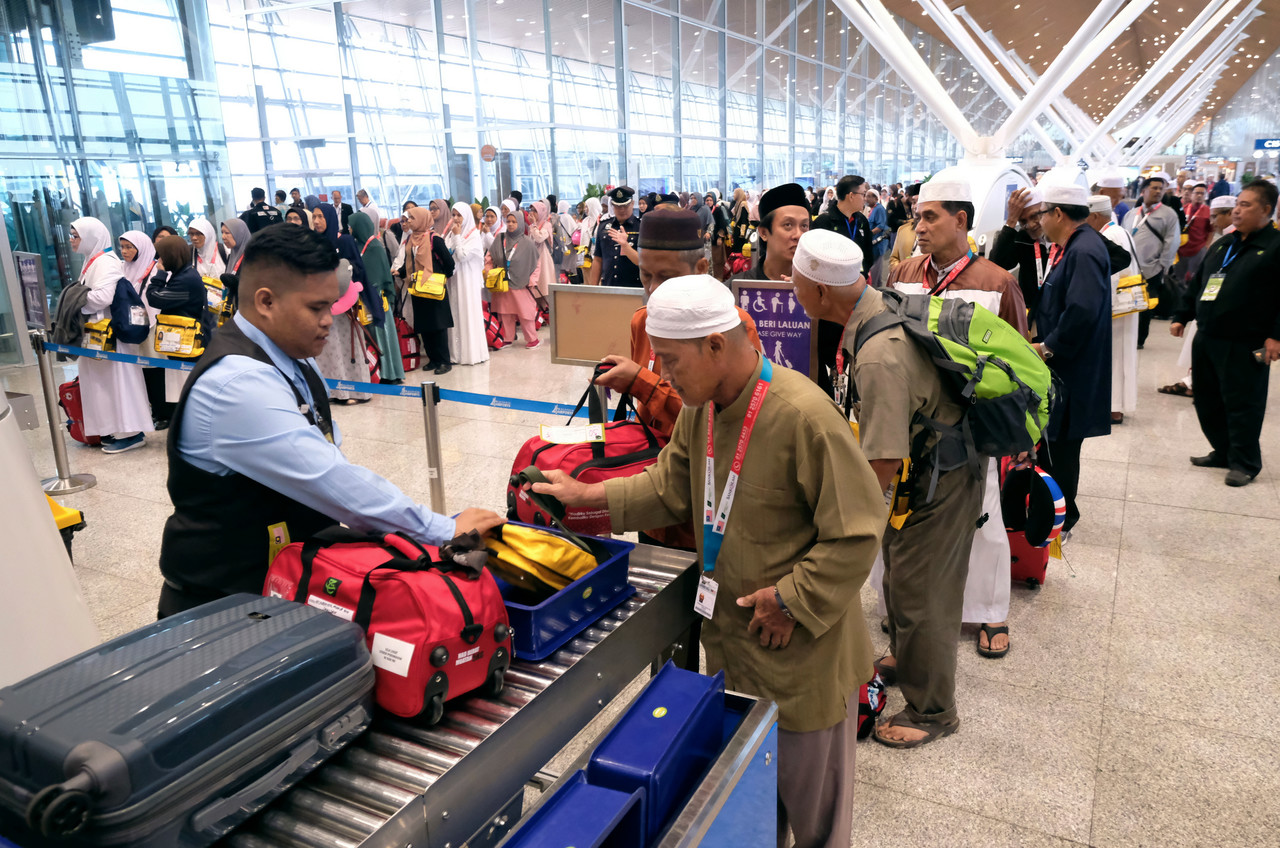By Nur Ashikin Abdul Aziz
KUALA LUMPUR, July 4 (NNN-BERNAMA) — Road to Makkah, a pre-departure process for Haj pilgrims introduced by the government of Saudi Arabia for selected countries, has received praises from travellers.
With the project, introduced in Malaysia in 2017, pilgrims need not undergo immigration checks in Saudi as the procedure is settled at the Kuala Lumpur International Airport (KLIA).
Norizan Yacop, a traveller for this year’s Haj, said she is satisfied with the initiative which saves time and is beneficial for those with health problems.
“This is mainly because my husband has just been discharged from the hospital and is still unwell. The initiative ensures that we don’t have to go through long queues,” she said to Bernama, here, today.
Sawandi Berahim, 65, from Tanjung Karang, Selangor, praised the good relations between Malaysia and Saudi that eventually resulted in the materialisation of the initiative.
“I went through a tiring (airport checkout) time in 2006. Alhamdulillah, this initiative will mean no more hassle for pilgrims,” he said.
Road to Makkah is a Haj pre-clearance system where pilgrims under the initiative would get their fingerprints taken and their passports stamped at the pilgrim’s country of departure.
Pilgrims’ entry into Saudi Arabia would be made easier, just like travelling on a domestic flight, while items of baggage would be sent directly to their accommodation.
There are 12 Saudi immigration counters at KLIA for the initiative this year, including two counters for the disabled.
Meanwhile, the Malaysian Immigration Department has provided, for the first time, two automated gates with facial recognition technology for easier immigration procedures.
A local company, Dagang NeXchange Berhad (DNeX), has been entrusted with on-site facilitation and communications connectivity for Malaysian and Indonesian pilgrims this year.
The initiative’s pilot project was conducted in Malaysia in 2017 before it was fully launched last year for about 65,000 Malaysian and Indonesian pilgrims.
This year sees the introduction of the initiative in Tunisia, Bangladesh and Pakistan.
–NNN-BERNAMA





